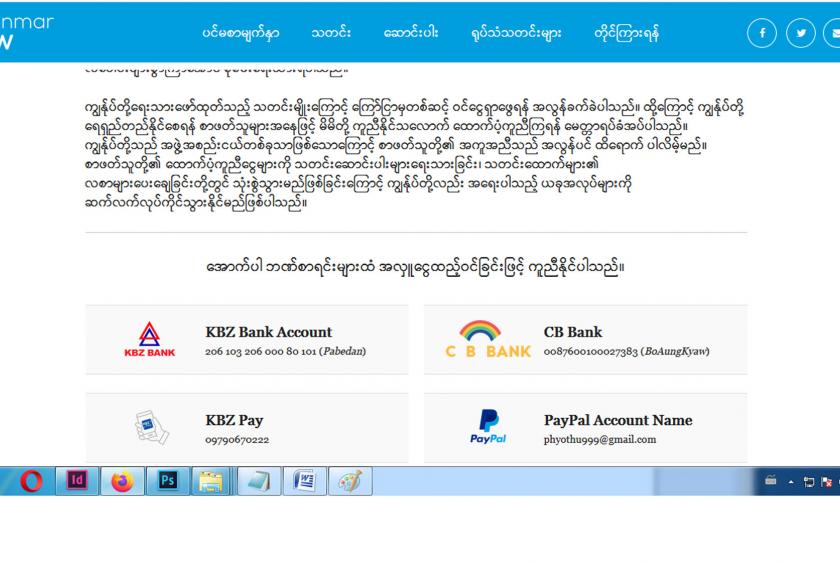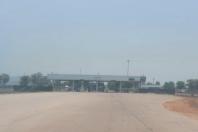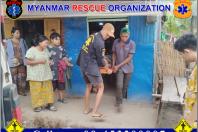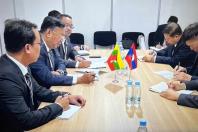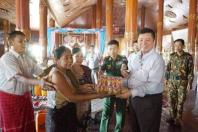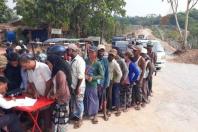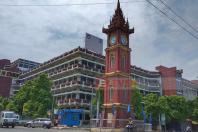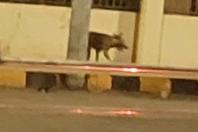The American Embassy to Myanmar issued a news release on January 31 in 2019.
The news release is that the programs of U.S Agency for International Development (USAID) provided US$ 72 million to build up development in CSOs, media and local community.
The news release said that the U.S. Agency for International Development (USAID) is funding two new projects that will last up to five years with a combined budget of nearly $72 million (MMK 108 billion) to support Myanmar’s democratic transition. These programs will strengthen media and civil society organizations.
These two projects are Civil Society and Media 2 and Community Strengthening Project.
The Civil Society and Media 2 projects will support civil society organizations and locally-owned independent media with up to $25 million over five years. This follows a previous four-year Civil Society and Media Project supported by USAID.
The Community Strengthening Project is a $46.4-million project, which could run up to five years, will work with communities.
Locally-owned independent media was chosen for a $25 million project. The chosen locally-owned media include Democracy for Ethnic Minorities Organization (DEMO), Mon News Agency, Myanmar Now (MN) and Than Lwin Khet News Agency.
Democracy for Ethnic Minorities Organization (DEMO) was founded in 2012. Its aims are to educate people, carry out organizing tasks, and promote media and journalism. It mainly represents ethnics.
Mon News Agency (MNA) expresses the news of the conflicts taking place in southern Myanmar and also is writing news of matters relating to peace and uploading them online.
Myanmar Now (MN) was founded in 2015 and is producing news of military intelligence, social affairs and political matters. In addition, it is broadcasting news.
Than Lwin Khet News Agency was founded in 2016 and is expressing the news especially of social field amid armed conflicts in Kachin, Kayin, Shan and Mon States.
Among these three news agencies, Myanmar Now has started media work with the assistance of Thomson Reuters.
In the past, Myanmar Now accepted the expression of their news by other media free of charge. But when the assistance came to an end, it took charges for a news story and an article.
Myanmar Now wrote the investigative reports of the matters relating Myanma Tatmadaw, cronies, Buddhist monks, Chinese businesses, government & its close cronies, and cabinet members, but it has not written about much-criticized Yangon regional government yet.
Myanmar Now stated the news of corrupt Taninthayi chief minister Dr. Daw Lei Lei Maw charged with anti-corruption law only a little.
The news of Dr. Daw Lei Lei Maw since then became the attention of local media before she was charged with anti-corruption law. Local people staged protests when State Counsellor Daw Aung San Suu Kyi made a visit to Taninthayi Region and then the news about this region was constantly expressed in local media.
Myanmar Now expressing investigative reports contained in a $ 25 million project did not express much about investigative report on Taninthayi regional government.
Moreover, Myanmar Now’s reports on Muslim countries, OIC and Western aid organizations and Rakhine issue haven’t been found.
Myanmar Now issued an announcement on November 25 in 2019, stating that it is difficult to stand for a long run, thereby seeking donations.
Although Myanmar Now received financial support from a $ 25 million project that runs up to five years, its announcement of seeking donations from the people due to insufficient funds is very surprising.
Donation seeking plan
A lot of criticisms have emerged in the country's media world following Myanmar Now's statement over donation seeking.
As media businesses are making loses not only in Myanmar but also in the whole world, Myanmar Now's plan faces both support and criticism.
Kyaw Kyaw Min, a journalist with over 15 years' experience and managing editor of Drive magazine, commented that previous aid and support should also be publicized in a transparent manner.
"Who established this media platform with what amount of fund? It could provide news free of charge whereas other media are struggling. Doesn't it have a responsibility to release news that how the funds have been spent?" Kyaw Kyaw Min said.
He worked as chief reporter of Voice news journal and wrote a lot of economic news for other local media.
He gave the following remark over Myanmar Now's plan.
"Talking about donation seeking because of the difficulty with survival, every media outlet finds it difficult to survive due to Myanmar's economic conditions. Not that media alone. That media alone does not see few commercials. This is the difficulty for all media as the country's economic trend changes. Under this situation, even big media have to struggle. This may be the like a saying "How the Galon Bird Became Salt Maker." Reviewing their final wording, one will use beautiful words if one wants to seek donation. Anyone, regardless of a bagger or donation seeker, will use such beautiful words. Only if we can say that we will arrive at the heaven for our donations, will donors come willingly. Every media is working as hard as it can. I think they have used this plan because there is no other way out," said Kyaw Kyaw Min.
When asked about foreign aid, Kyaw Hsan Min, an official from Myanmar Now confirmed but did not elaborate details about what organization provided aid.
"We cannot stand for a long run with this aid. This is why we have started this plan," he said.
Ohn Kyaing, chairman of Myanmar Press Council (MPC), said although there is no ban on donation seeking for media, there may be more or less harm to their image.
"Donation is not mentioned in the code of conduct. But when it comes to ethics, dignity can be harmed. However, such a tradition existed. In the early independence period, three newspapers were shut and the politicians demoralized. So some journalists sought donations in some places such as Theingyi Market. There was such a tradition. For this, the authority concerned was politically harmed and the image of those newspapers tarnished. Donation is not mentioned in the code of conduct. One thing is that some newspapers in the world are running with foreign aid. When they cannot survive by themselves, they usually seek donations. Meanwhile, some stopped their operation as they didn't want their dignity to be harmed," said the chairman of MPC.
A media can accept cash assistance from any organization. But this should not be accepted if there is any intervene with newsroom. Again, there must be transparency in accepting public donations, said Zeyar Hlaing, a member of MPC.
"Media can accept cash assistance from anywhere. But there is one thing. We need to manage to ensure that there is no interference in newsroom or editorial independence. For example, tycoons bought media in the world. The problem is that in Myanmar's media, television channels are owned by the government, the military and businesspeople. There is no TV channel that cannot serve the best interest of the public. Owners do not work well if it is not in their own interest. We cannot say about independence even if a boss spends his own money. We can say that it's independent if a newsroom can work independently. It is OK if there is no influence over the decision of a newsroom no matter where they accept money, from a Western country or China. If they work in favour of their donors, such a newsroom cannot be independent and that can serve little public interest. If they spend money from the public, that can be accepted as a model. But there must be transparency in how the money will be spent. Otherwise, there may be a problem with editorial independence," Zeyar Hlaing commented.
Regarding seeking donations from the public, Kyaw Hsan Min from Myanmar Now said there was no limitation over whom the donation will be accepted.
"Anyone can provide assistance if they like our news and articles. There will not be any limits. We will not say where we will accept money or where we will not accept," he added.
Myanmar Now, which has support from overseas, wrote extensively about an article which wrote about Chinese advertisements in private media in Myanmar. However they didn’t criticize about how the impacts and benefits are in concerned with what the western countries are doing.
The article is being criticized that it wrote about the advertisements from China when the private media have made their stances strong.
The private media, which have strong stances, are not accepted the advertisements which are not matched with their policies, but public demanded them (Myanmar Now) to make publicity of what they earned.
Kyaw Kyaw Min, Managing Editor of Drive Magazine said the news agency has responsibility to make publicity of what kind of donors they have.
“If one opens a center to ask for donations, they need to make publicity including the list of donors. We need to question about it and they need to make it public. Is the donation come from narcotics drug traders or powerful people or some ordinary people? People need to know about it distinctly,” said Kyaw Kyaw Min.
Myanmar Now, which is making investigating reporting, is rarely wrote about articles related with narcotics drugs when the country is counteracting narcotics drugs as the national project. There are only a handful of articles related with narcotics drugs within two years time as far as we learnt.
Journalist Myo Nyunt Maung said both people who criticized Myanmar Now for seeking support from donors and Myanmar Now, which seek support from donors, are not wrong.
“There are occasions in which journalists ask for supports from donors in foreign countries but they expressed openly what the donors need to follow. It is better to make it clear before anything to do. Both people who criticized Myanmar Now for seeking support from donors and Myanmar Now, which seek support from donors, are not wrong. All are right. The only weak point is they are weak at literacy,” said the journalist.
The main thing is the problems occurred because they have no support from the government. The ICJ case is one of the examples to show what the media is strong or not, he said.
“They (Myanmar Now) already know about it. In some cases, some big businesses survive with advertisements although they didn’t seek support from the donors. The state owned newspapers are doing like that. The worse thing is it is a new challenge. The profit is not found. The government alone cannot understand it. We cannot expect protection from the government for next five years. We need to deal with it. We know about it by looking at how the media made response in news about the State Counsellor to go to the ICJ. If Myanmar media are weak, we will not be given favour internationally,” he said.
Do the media asking for donations pay their taxes?
It is questionable whether media like Myanmar Now which is operating with oversea assistance, pay tax to the government or not.
Most of private media in the country have to pay their taxes as companies and each staff have to pay their taxes.
Under this circumstance, it is questionable whether the news media like Myanmar Now is under the tax raider screen of the government or not.
Myanmar Now has not revealed transparently the fact whether it pays taxes to the government or not.
Ko Kyaw San Min, an official from Myanmar Now said: “In the past, some organizations provided assistance to us. Their assistance also goes to other social organizations including the government. They provide funds for salaries and expenditures. We have to spend these funds.”
Tax revenue is the lifeblood of a government which is marching towards the democracy system.
The first hindrance a local businessperson in Myanmar shall face is tax payment.
A shopkeeper shall pay tax to the Internal Revenue Department first. The municipal department informs the businessperson about the tax payment to the Internal Revenue Department when he or she applies for license at the municipal department. They can apply for license at the municipal department only after paying their taxes.
When the local media are declining and facing difficulties, the government needs to review the tax system for the media which have got overseas assistance.
At a time when, most of the people working in the media industry are paying their taxes, it is questionable whether the transparency in tax payment by such a media which operates with the assistance of donors, or not.
Raising funds from the public is a discredit to the fourth pillar, media. There is criticism that it may become a place where the businesses can launder their money.
That’s why; there is widespread criticism about the lack of transparency in Myanmar Now’s overseas assistance and donations.
Donations which require explanation
Most of media in Myanmar are running with the assistance of overseas assistance. There is a very few number of media which are running with their own funds.
Myanmar Now, one of the media which have got overseas assistance, needs to reveal its donation scheme and the fact from which organization it has got assistance, in a transparent manner.
It is assumed that Myanmar Now does not need to make its plan public when it links to an organization and a person. Myanmar Now is duty-bound to explain its scheme when it comes to the public. It is impossible to know the future path by issuing a donation letter alone.
The Guardian newspaper from the UK, is running with the public donations. It declares its operation money and profits earned transparently. It also issues a statement about to which organization it makes donations when it earns profits. It uses the profits earned, on journalism rather than the utilization of profits. The most important thing is the Guardian constantly working on journalism without any influence by the person, the government organization and a foreign-sponsored organization. (The fact about the Guardian is described separately).
Myanmar Now does not explain the fact clearly that it will stand as an independent media like the Guardian. It has a duty to explain the fact that what it did in the past as it relates to the public.
A fund of 25 million USD to be earned in five years is a very huge amount for Myanmar media industry. That amount is also very huge for Myanmar Now. At this time, it is more surprising that Myanmar Now is asking for public donations.
“The Guardian is a British daily newspaper. It was founded in 1821 as The Manchester Guardian, and changed its name in 1959. Along with its sister papers The Observer and The Guardian Weekly, the Guardian is part of the Guardian Media Group, owned by the Scott Trust. The trust was created in 1936 to "secure the financial and editorial independence of the Guardian in perpetuity and to safeguard the journalistic freedom and liberal values of the Guardian free from commercial or political interference". The trust was converted into a limited company in 2008, with a constitution written so as to maintain for The Guardian the same protections as were built into the structure of the Scott Trust by its creators. Profits are reinvested in journalism rather than distributed to owners or shareholders.”

